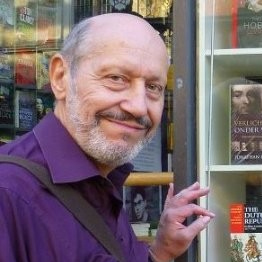International Conference
"Empires: Experience, Memory and Idea."
Pamplona - October 1st-3rd, 2025
The resurgence of great-power competition and renewed debates over imperial legacies have sparked scholarly and policy interest in the historical and contemporary dimensions of empires. Current discourse extends beyond traditional postcolonial analyses to examine emerging forms of imperialism and colonialism. Empires, transcending specific civilizations, have produced varied experiences, from violence and resistance to cultural governance and economic exploitation, which continue to shape global inequalities, collective identities, and international relations.
Theorizations of empire, such as the Roman "katechon," the Chinese "mandate of heaven," and the West's "manifest destiny," have long coexisted with critiques and resistance. These debates remain pertinent, addressing historical and emerging imperial systems while exploring the causes of their rise and decline.
Collective memory and memorialization are central to understanding these legacies, influencing how societies construct identities and negotiate their place in the global order. Conflicts over imperial symbols-such as statue removals and renaming institutions-illustrate the contested space where history, power, and identity intersect.
This conference aims to foster interdisciplinary dialogue, examining the interplay between imperial histories and contemporary memory politics, and exploring how these dynamics shape modern political, cultural, and academic frameworks.
This congress is part of the ICS Challenge 24-25 "Orientalism and Occidentalism: crossed gazes" of the Institute for Culture and Society of the University of Navarra.

From the Institute for Advanced Study, he specializes in European and colonial history from the Renaissance to the 18th century. His B include The Dutch Republic and Radical Enlightenment, focusing on the impact of philosophy on modernity and democracy. His recent research explores the Radical Enlightenment's early critique of European colonialism (1660-1770).

King's College London. Peter Heather's work concerns the later Roman Empire and its successor states. His books include The Goths (1996), The Fall of the Roman Empire (2005), Empires and Barbarians (2009), and (with John Rapley) Why Empires Fall: Rome, America, and the Future of the West (2023).

University of Copenhagen. Maria Mälksoo's work concerns Critical Security Studies (ontological security, securitization of historical memory); political anthropology (liminality, rituals), and the political practice of deterrence. Her books include The Politics of Becoming European (2010), Remembering Katyn (2012), and Handbook on the Politics of Memory (2023).

From Stockholm University, Gustafsson focuses on security, power, and the role of collective memory in International Relations. His research examines how memory politics and narratives influence international relations, particularly in East Asia. B articles include Memory Politics and Ontological Security in Sino-Japanese Relations (2014), Routinised Recognition and Anxiety (2016), and Narrative Power (2019). His work explores the impact of storytelling on East Asian politics.
ORGANIZING COMMITTEE

Javier
Gil

Jaume
Aurell

Montserrat
Herrero

Melikke
Akkaraca

Raul
Under

Ana Belén
Martínez
How to get there
Institute for Culture and Society, University of Navarra. Pamplona
The entrance to the building is through the Central Library and the Ismael Sánchez Bella building.
Calle Universidad, 6, 31009 Pamplona, Navarre
31008 Pamplona.
Nearby hotels
→ Blanca de Navarra Hotel 4*.
→ Sancho Ramírez Hotel 3*.
→ Occidental Hotel Pamplona 4*.